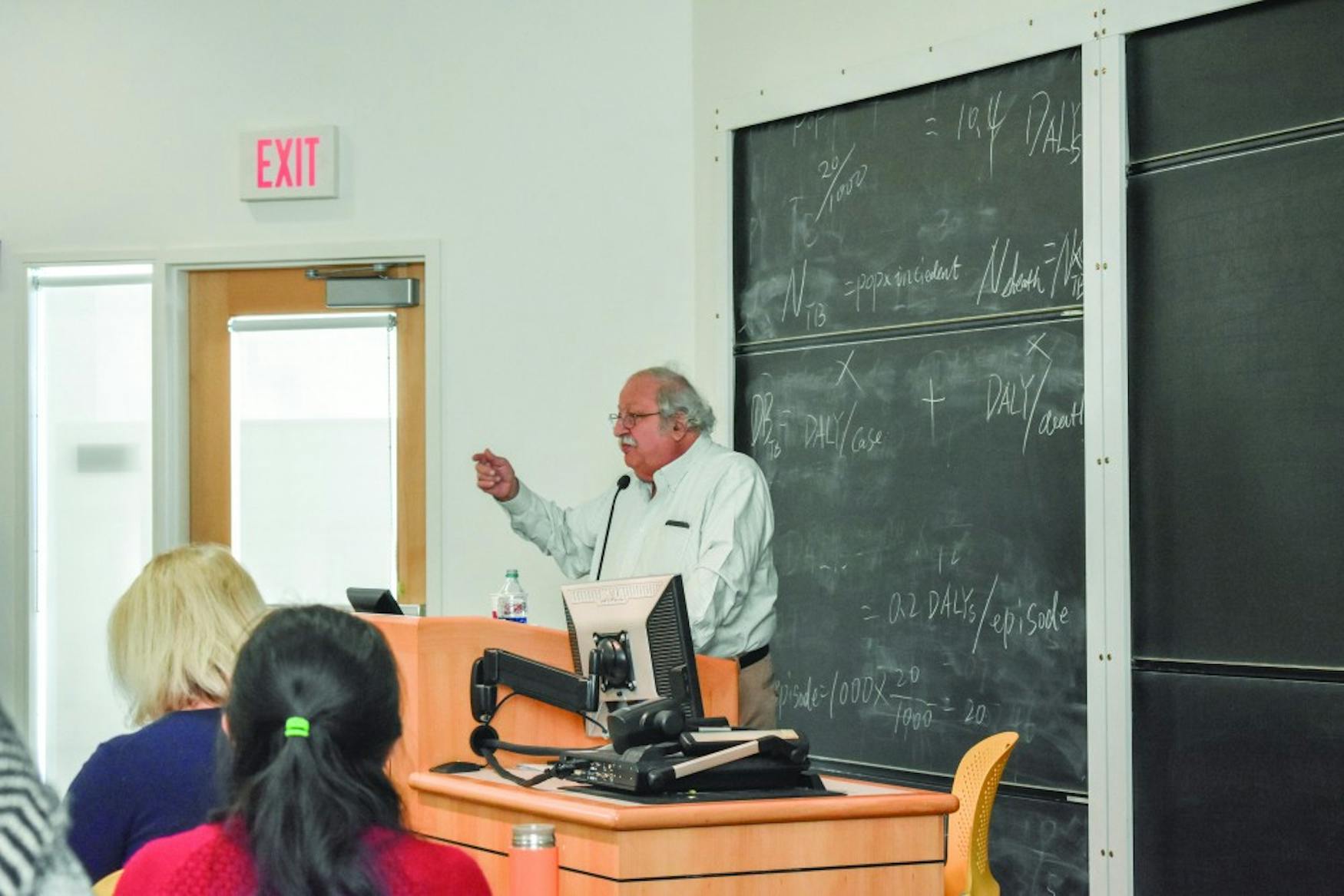Professor shares lessons from experience in political organizing
Ganz shared wisdom, strategies and helpful tactics from his years of grassroots experience.
The Heller School for Social Justice and Management hosted a guest lecturer on Wednesday who spoke about his experiences with leadership and grassroots organizing in his talk, “The Democratic Promise: People, Power and Change.” The lecturer, Prof. Marshall Ganz, works in the public policy department at the John F. Kennedy School of Government at Harvard.
In 1964, as a junior at Harvard, Ganz volunteered for the Mississippi Summer Project, which was an effort to support Black organizers in the South who were working toward racial equality, mainly through voter registration. Ganz was a part of the Mississippi Freedom Democratic Party, which was created to challenge the segregation of the Democratic Party.
Ganz recounted that shortly before he left for Mississippi, three of his colleagues at the project who were already down south — James Chaney, Andrew Goodman and James Schwerner — were killed by the Ku Klux Klan. This experience, along with spending part of childhood in Germany after the Holocaust, showed Ganz the consequences of racism. He explained, “If you turn people into objects, you can do anything to them.”
Ganz continued to learn “the craft of organizing” from civil and labor rights leader Cesar Chavez, who at the time was organizing migrant farmer workers in California. He worked and studied with Chavez for 16 years before going back to Harvard to finish his senior year, which he completed in 1992.
Drawing on experience from his years of volunteering with the Mississippi Summer Project, studying with Chavez and then organizing now-Speaker of the House Nancy Pelosi’s first campaign, Ganz had much wisdom to share with the audience about leadership in organizing. He explained that leadership was about accepting responsibility in conditions of uncertainty more than being in control and about learning more than knowing. “If you base your claim to leadership on knowing everything, you’re lost, because you don’t know the future,” he said.
Ganz discussed several aspects of organizing, starting with building relationships through storytelling. “Narrative is a fundamental language of emotion that teaches us something about where to get the emotional resources for agency,” he said. Ganz explained that narrative moments of “hope and hurt” are necessary to help the world. Hurt indicates that something needs fixing, and hope provides the motivation to fix it, he said.
The next component of organizing Ganz named was strategy. “Strategy is a creative process. It’s a recognition of your own resources,” he said. “It’s resisting the conventional wisdom and thinking clearly about where your points of leverage are going to come from.”
Ganz addressed the difficulty of having structure in organizing. He described structure as “micro-practices that are necessary to achieve macro-results.” Ganz pointed out the necessity of getting people to follow through with promises, show up for meetings and exhibit commitment. Without structure and collaboration, motivation and passion cannot lead to change, Ganz explained.
At the same time, Ganz emphasized the importance of motivation in a movement. According to Ganz, motivating someone requires that the task be meaningful: Allow the person to take responsibility, let them use several different skills and give them the opportunity to creatively contribute.
Ganz explained that taking the time to train people can be beneficial to organizing, not only because it makes the trainee more efficient, but also because it equips them to pass the knowledge on to others. Ganz recommended seeing “every task as an opportunity for leadership development.”




Please note All comments are eligible for publication in The Justice.